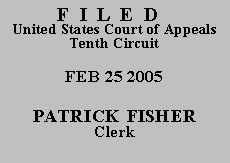

| UNITED STATES OF AMERICA, |
|
As part of the plea agreement, the government agreed to recommend a two-level downward reduction if Mr. Perez-Marin met the safety-valve criteria. I R. Doc. 49 at 6. Sentencing was postponed twice to afford Mr. Perez-Marin the opportunity to truthfully provide "to the Government all information and evidence . . . concerning [his] offense or offenses that were part of the same course of conduct or common scheme or plan." U.S.S.G. § 5C1.2(a)(5). The government opposed application of the safety valve, and the district court found that Mr. Perez-Marin had not complied with the "tell-all" requirement in § 5C1.2(a)(5).
Whether the government breached the plea agreement regarding the safety-valve provision is question of law that we review de novo, even where, as here, the defendant failed to raise a proper objection at the time of the alleged breach. United States v. Werner, 317 F.3d 1168, 1169 (10th Cir. 2003). We construe a plea agreement according to general principles of contract law, id. at 1170, and both parties agree that the plain language of the agreement makes the government's recommendation conditional on Mr. Perez-Marin's satisfaction of the § 5C1.2 criteria. The parties further agree that the only criterion at issue is that found in § 5C1.2(a)(5).
The government's obligation cannot be viewed in a vacuum. The district court found that Mr. Perez-Marin did not satisfy the criterion. If the district court's decision was proper, the government was under no obligation to recommend a downward reduction. We review that finding for clear error. United States v. Gonzalez-Montoya, 161 F.3d 643, 651 (10th Cir. 1998).
Mr. Perez-Marin bore the burden of demonstrating that he had satisfied the statutory requirements for a "safety-valve" reduction by a preponderance of the evidence. See United States v. Zavalza-Rodriguez, 379 F.3d 1182, 1187 (10th Cir. 2004). Section 5C1.2 is a "tell-all" provision, i.e., the defendant must provide not only truthful, but complete information, to the government. United States v. Salazar-Samaniega, 361 F.3d 1271, 1276-77 (10th Cir. 2004). The government does not bear the burden of seeking out, or specifically requesting, information from the defendant. United States v. Ramirez, 94 F.3d 1095, 1101 (7th Cir. 1996).
The record supports the district court's finding and it is not clearly erroneous. Mr. Perez-Marin did not carry his burden. He was initially reticent and unhelpful during discussions with the government. V R. at 6. He was caught in an inconsistency regarding his affiliation with Ricardo Godinez-Martinez.(1) VI R. at 5. Moreover, he provided an explanation regarding his acquisition of the methamphetamine in question that the government and the district court found to be implausible or untruthful. VI R at 7; VII R. at 14-15. Specifically, the court found it "inconceivable" that Mr. Perez-Marin would be able to obtain the quantity of methamphetamine at issue in this case by flagging down in a park a man he had never met, soliciting two-and-one-half pounds of the narcotic, and in exchange promising his car as collateral. VI R. at 7, 13-15. Trial counsel's arguments, themselves somewhat inconsistent with the defendant's own statements, were simply insufficient to counter this assessment. The government is not required to disprove the defendant's version, and ultimately the district court must sort out the facts as was done here. Accordingly, we find that the government did not breach the plea agreement.
AFFIRMED.
Entered for the Court
Paul J. Kelly, Jr.
Circuit Judge
*. This order and judgment is not binding precedent, except under the doctrines of law of the case, res judicata, and collateral estoppel. This court generally disfavors the citation of orders and judgments; nevertheless, an order and judgment may be cited under the terms and conditions of 10th Cir. R. 36.3.
2. After examining the briefs and the appellate record, this three-judge panel has determined unanimously that oral argument would not be of material assistance in the determination of this appeal. See Fed. R. App. P. 34(a); 10th Cir. R. 34.1(G). The cause is therefore ordered submitted without oral argument.
1.Mr. Perez-Marin urges that this determination is immaterial given the requirement under section 5C1.2(a)(5) that the information relate to the course of conduct at issue in the plea. We agree in part. However, we nevertheless believe that such an inconsistency impacts the court's and the government's assessment of a defendant's credibility. Credibility in turn weighs heavily in a determination that a defendant has been complete and truthful under section 5C1.2.